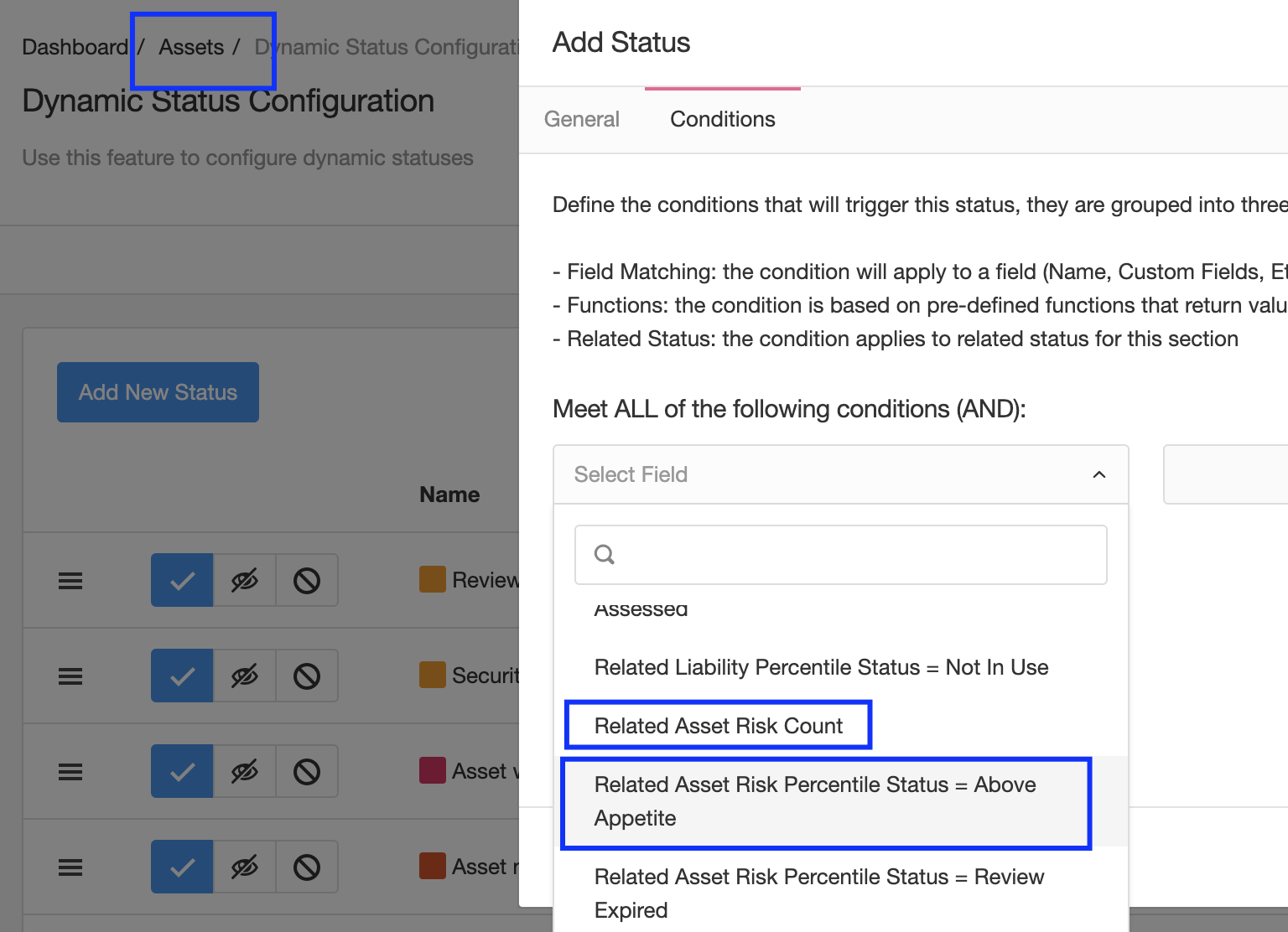Status Attributes
We introduce you to dynamic status attributes
Introduction
In this episode, we describe the key attributes you must understand about Dynamic Statuses before you use the functionality.
Scope
Dynamic Status is present in every module and sub-module of eramba, you can see them on any filter typically on the first columns (starting from the left), you can not hide these columns using filter settings. Dynamic Statuses are configured from the menu bar option "Status".
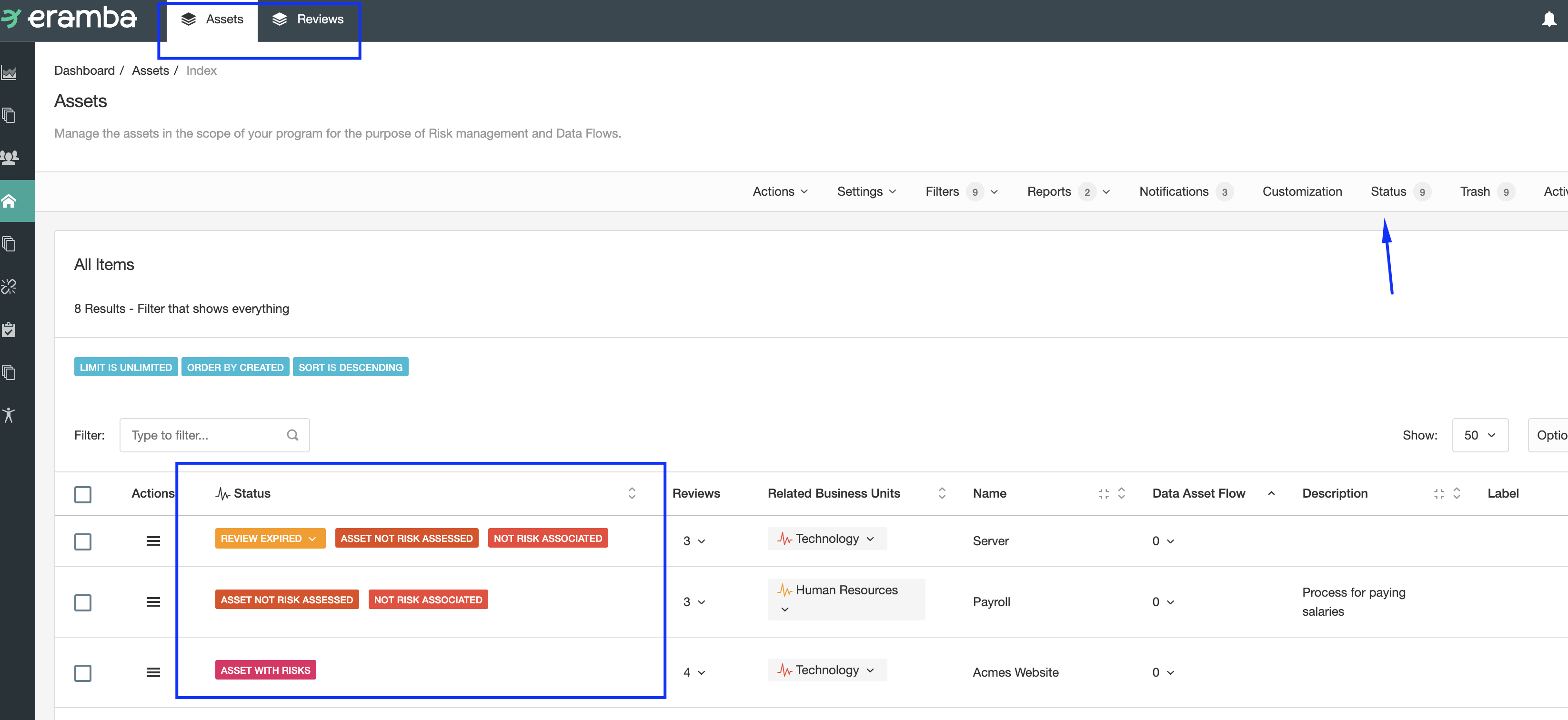
When no status matches there will be a default status called "OK" in green. This status can not be modified.
Conditions
When creating statuses you need to define the title, description colour of the status label. You can also choose if the status will be shown or not in the filter, this is sometimes useful when all you need from status is to trigger notifications and you are not interested in displaying them on the filter.
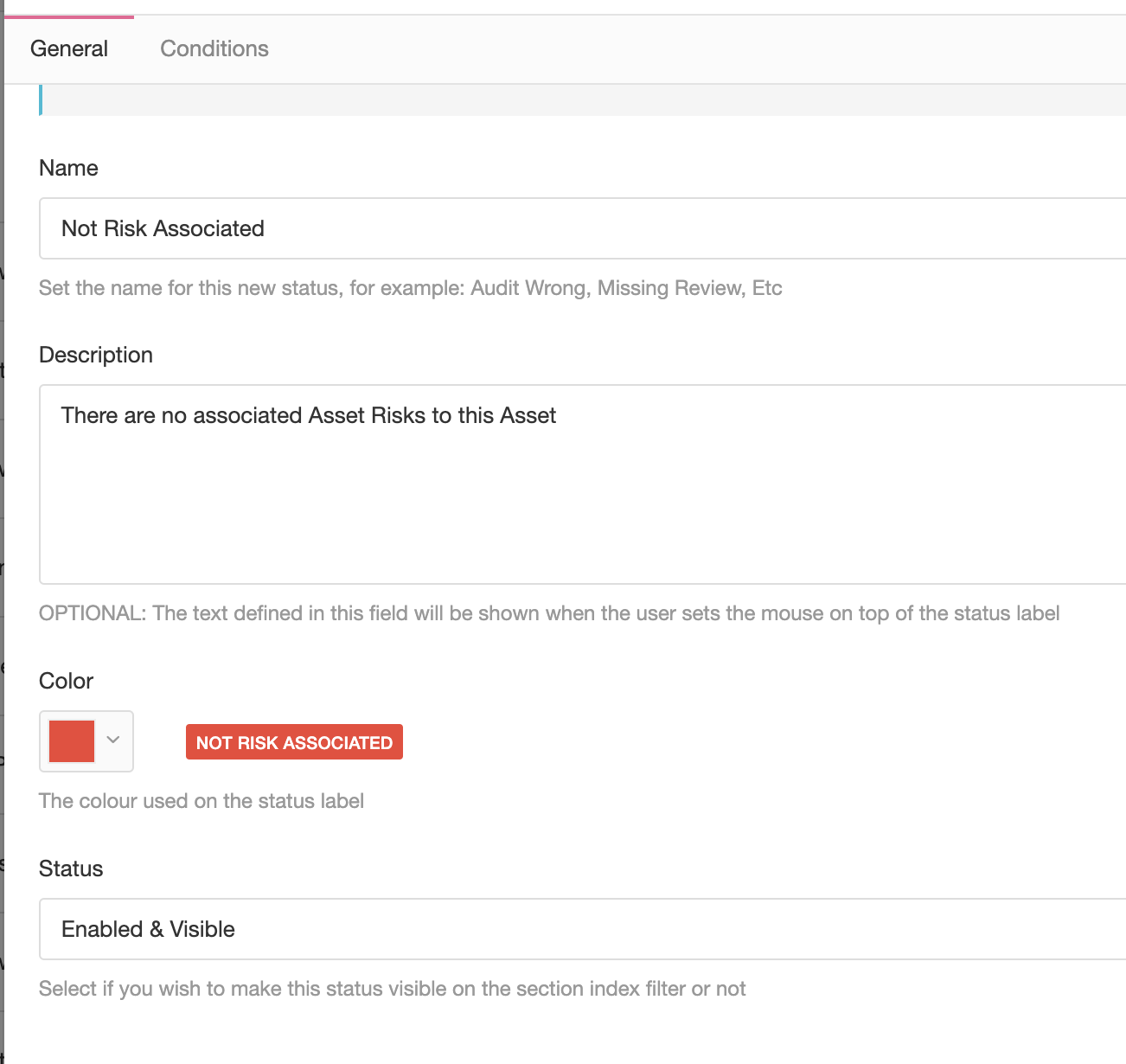
Conditions
A key aspect of status is the conditions that trigger them, when creating a status you will need to define these conditions. Status conditions are grouped into three types:
- Fields: they will use the fields defined in the form of the module you are working on. You can do comparisons such as "Include", "Is Empty", Etc.
- Functions: these are hardcoded functions that return a number, for example, "Percentage of Child Audits with status "Failed" from last calendar year". The number of available functions will change based on the number of modules related and their defined statuses.
- Related Statuses: they return the status of associated items. The number of available functions will change based on the number of modules related and their defined statuses.
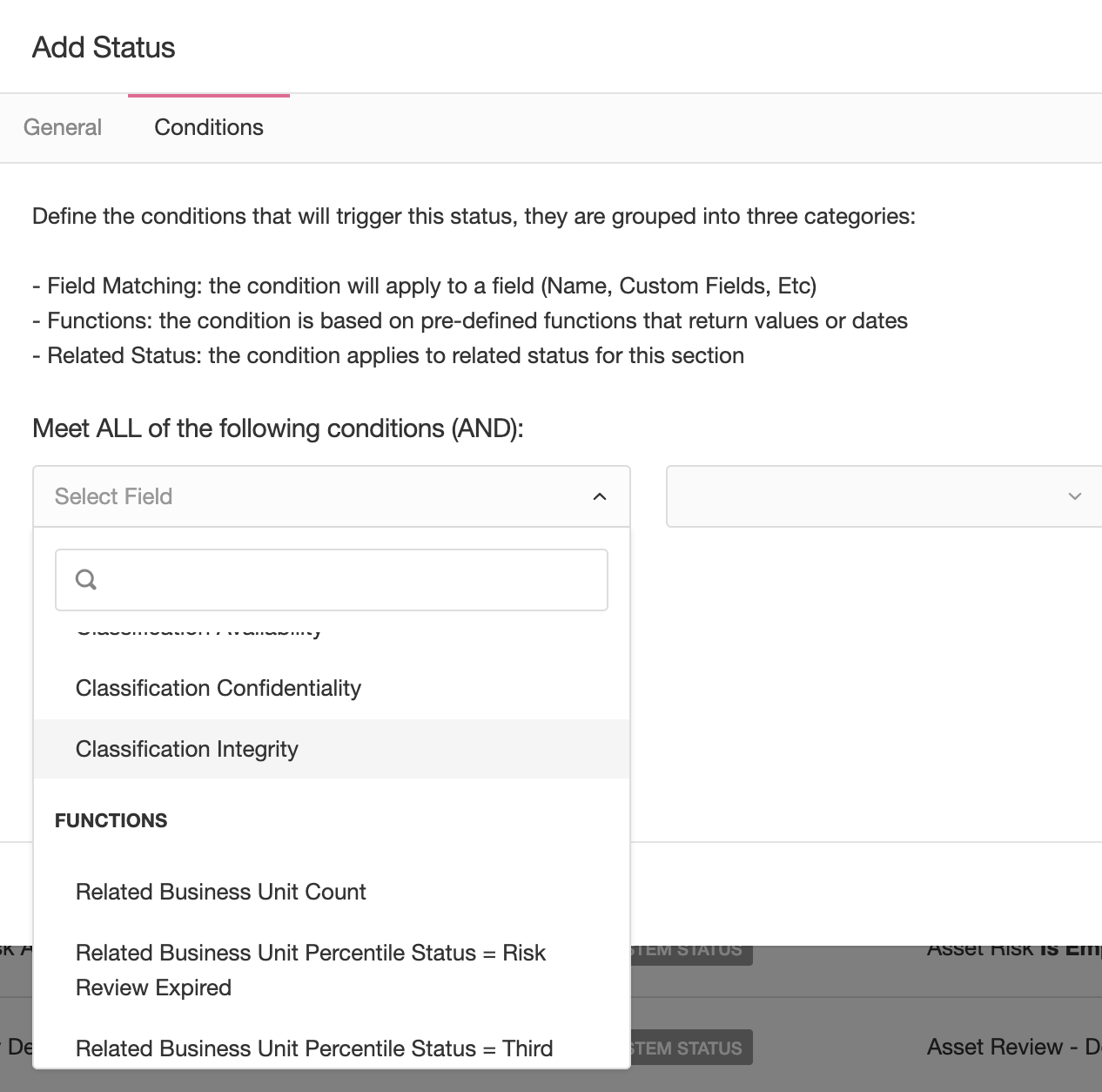
Conditions can be defined as logical AND or OR, you can use one or more conditions from the mentioned above.
Inheritance
When defining a status in a module you will notice when creating the conditions that in the case of Functions and Related Status the number of options varies from module to module. The reason is inheritance.
Modules in eramba are associated, in some cases modules have sub-modules. For example, the diagram below shows how modules relate to each other when doing Risk Management.
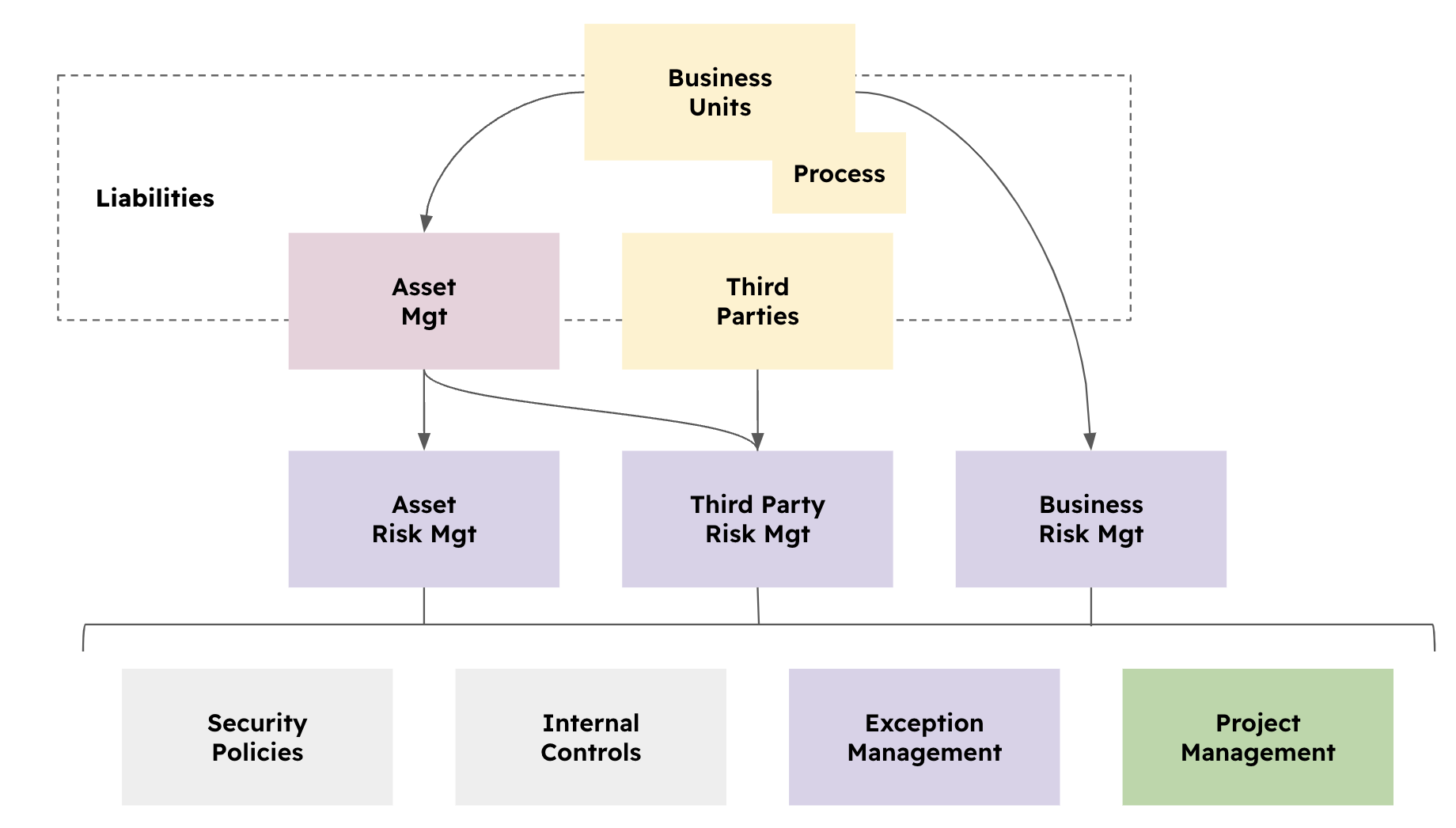
Using inheritance, you could for example on the Asset Module:
- Configure a status with a condition that counts how many Asset Risks are associated with any given asset (using a function condition). The function will return a number, upon which you can trigger a status.
- Configure a status that triggers when %50 of the associated Risks have the status "Above Appetite". The status "Above Appettie" is a status defined in the Risk module, you are simply using it to trigger other status in an associated module.
